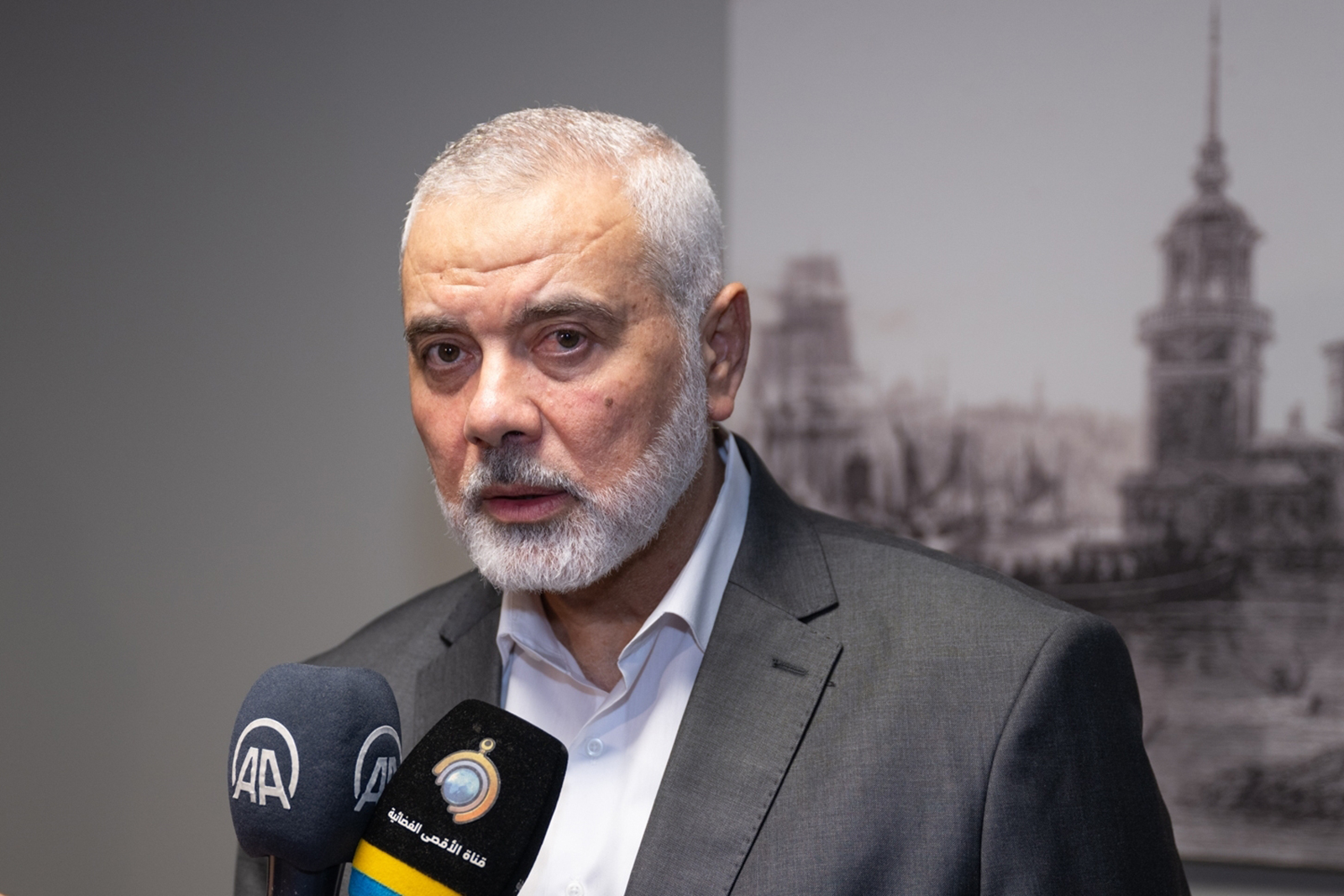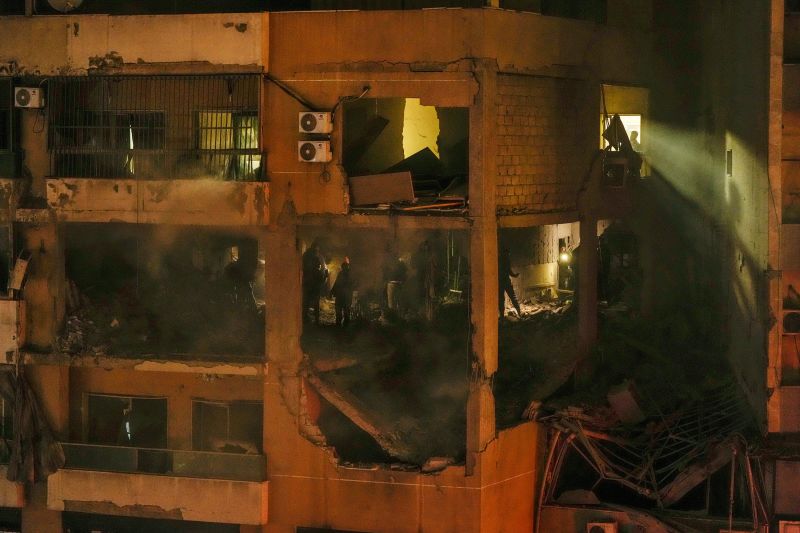
Ismail Haniyeh, the political leader of Hamas, mourned the death of senior Hamas official Saleh al-Arouri, calling the attack in Lebanon a "terrorist act."
In a televised speech, Haniyeh condemned Arouri's killing as a "cowardly assassination" and blamed Israel for the deadly strike.
Haniyeh also mourned the deaths of two leaders from Hamas' military wing, the Qassam Brigades — Samir Findi Abu Amer and Azzam Al-Aqraa Abu Ammar — who were killed in the same strike.
Despite the assassinations, Haniyeh claimed Hamas would not be beaten.
"A movement whose leaders and founders fall as martyrs for the dignity of our people and our nation will never be defeated," Haniyeh said.
At least four people were killed in the attack that targeted an office belonging to Hamas in the southern Beirut suburb of Dahieh, Lebanese news agency NNA reported. The area is also a stronghold of Iran-backed Hezbollah.
Israel has not confirmed it was behind the strike.
"Israel has not taken responsibility for this attack," Mark Regev, a senior adviser to Israeli Prime Minister Benjamin Netanyahu said in an interview with MSNBC. "But whoever did it must be clear that this was not an attack on the Lebanese state. It was not an attack even on Hezbollah."
Escalation fears: For nearly three months, tit-for-tat fighting between Israel’s military and Hezbollah has largely stayed within a roughly 4-kilometer range of the border region, with Hezbollah striking Israel while Israel struck Lebanon.
The fighting has raised fears among the United States and other Western countries that a full-scale war could break out between Israel and the Middle East’s most powerful paramilitary organization, Hezbollah.
Those fears have so far failed to materialize, but the blast in Beirut on Tuesday afternoon is likely to fuel concerns about the potential for escalation.



